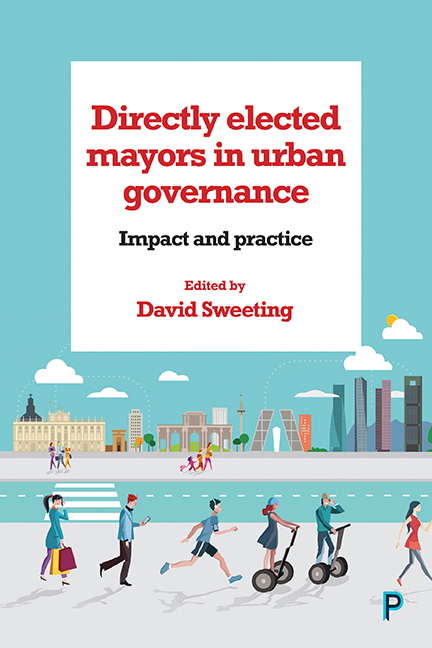five - Directly elected mayors: necessary but not sufficient to transform places? The case of Liverpool
Published online by Cambridge University Press: 05 April 2022
Summary
Introduction
Interest in mayoral models as key to the many challenges of subnational governance and as a way around ‘traditional’ local government has reached a high water mark with the institutionalising of the ‘northern powerhouse’ policy within the machinery of government in the 2015 Queen's Speech. Therein a metropolitan mayor model is presented to local government by the Conservative government as a condition for investment. It is fair to say, however, that the enthusiasm for mayoral models is far from an ‘evidence-based’ policy; data on the effect of such changes is empirically equivocal, patchy and partial.
Mayoral authorities exist in 17 single local authorities in England. The combined authority ‘metro mayor’ for Greater Manchester will be the first UK mayor, outside London, to cover multiple boroughs. The Mayor of London sits atop a whole assembly structure in the Greater London Authority and the extant London boroughs in an uneasy distribution of power. This chapter explores the experience of the adjacent city region to Greater Manchester, Liverpool City Region (LCR), which although sharing space within the ‘northern powerhouse’ has a different governance story to tell. Research evidence offers little to demonstrate the vaunted connection between positive economic outcomes and strong modes of executive leadership. The aim of this chapter is to address this lack of empirical clarity through the lens of a case study on the directly elected mayor for the city of Liverpool. However, the key role of a figurehead in embodying a credible narrative around a place may provide the basis for changing received wisdom about that place with a concomitant impact on investor confidence, from both private and public sectors. We argue that getting this story straight provides the foundation for transforming a place, and yet that this narrative is wider and broader than simply can be framed by and around a directly elected mayor.
Presenting the case of Liverpool, our argument is based on a study of the perceptions of the shift from a leader and cabinet model to a directly elected mayor model in 2013. We argue that the potentially radical potential of the introduction of the mayoral model was engulfed by the conjunction of this change with an aggressive austerity agenda that has undermined the scope of the local authority to operate effectively in the city of Liverpool.
- Type
- Chapter
- Information
- Directly Elected Mayors in Urban GovernanceImpact and Practice, pp. 69 - 84Publisher: Bristol University PressPrint publication year: 2017



